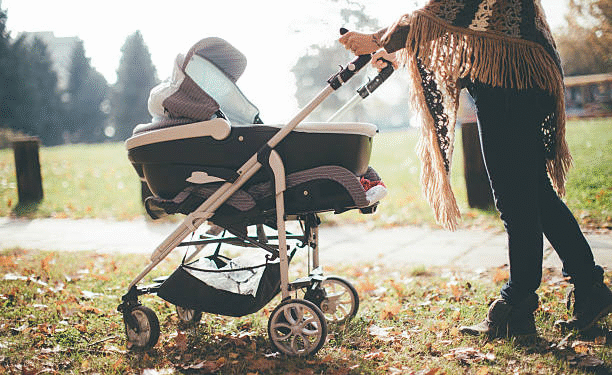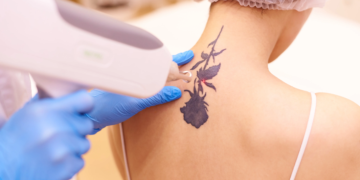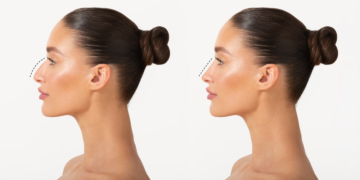Nowadays, convenience, comfort, and an on-trend look are the features parents really want in a stroller. As family lifestyles change, baby stroller companies are swapping old-school designs for smart, flexible models that make life easier. For product managers and retailers, spotting these fresh upgrades is key to keeping shelves stocked with gear parents are ready to buy.
In this post, we’ll take a tour of the biggest tech and design jumps hitting today’s strollers. The goal is to give B2B pros clear ideas they can use when planning inventory or working with manufacturers.
Softer Suspension Systems for Bump-Free Rides
One of the biggest quality-of-life wins in modern strollers is the new generation of suspension setups. Parents no longer want to wrestle with rattling wheels when they hit curbs or grass. Whether navigating busy sidewalks, cruising through a park, or rolling over pavers, today’s premium models treat babies to a smooth glide.
To keep up with what today’s parents want, stroller brands are now packing in:
- All-wheel suspension systems, much like those found on bikes or cars, so rides stay smooth no matter the surface
- Shock absorbers that soak up bumps and guard the baby from hard jolts
- Pivoting front wheels that can be locked in place for quick turns or straight-line stability
- Air-filled or foam-filled tires that grab the ground and cushion the stroller on rough paths
Because of these perks, outdoor adventures and travel trips become hassle-free, making them big selling points for wholesalers focused on active or city-loving families. For baby brands, slapping a high-quality suspension under the frame boosts the stroller’s street cred and helps it shine in upscale markets.
Lightweight and Compact Folding Mechanisms
Life moves fast, and parents are always juggling. Whether they’re rushing to the subway, switching bags at the car, or holding a toddler by one hand, a quick folding stroller can be a game changer. That’s why designers have kept collapsibility and feather-light frames front and center whenever they sketch a new model.
Key improvements shoppers notice today involve ease-of-use, especially for busy parents:
- One-hand folding systems let you collapse the stroller with a squeeze while keeping your little one on your hip. No awkward juggles.
- Self-standing fold designs mean the stroller stays upright in the hallway or at the café instead of falling over and taking up precious room.
- Compact frames slide into tight car trunks, boardable airplane aisles, or slender town-house corridors, freeing up space for groceries or luggage.
- Lightweight materials—think aluminum alloys alongside rigid composite plastics—cut down the heft without sacrificing strength.
All of these upgrades make everyday trips smoother and a little less stressful. From a retailer’s point of view, having a rack full of feather-light, space-saving strollers attracts customers who live in apartments or own small cars. So it makes sense that baby brands are now calling portability the crown jewel of their newest collections.
Modular and Multi-Functional Design Features
Versatility is fast becoming the second pillar propping up modern strollers. Parents want gear that transitions easily from newborn days through toddler tantrums, and that pulls double duty without cluttering the closet. To deliver, brands are rolling out modular systems you can snap apart, swap seats on, or expand with add-on kits.
A new wave of modular stroller designs is changing the game for busy parents. Imagine a stroller that easily flips into a cozy bassinet for your newborn, then later converts to a sturdy toddler seat. Travel systems take that one step further by clicking directly into car seats, so you can move smoothly from car to sidewalk without waking your little one. Many models come with snap-on snack trays, adjustable sun canopies, and removable footrests, letting families customize features on the fly. Larger households aren’t left out—dual and even triple configurations are now possible for twins or triplets. These clever setups stretch each product’s life span and make everyday outings a lot less stressful. Because of that same flexibility, retailers can market bundled accessories, suggest upsells, and craft value packs that boost the bottom line. For stroller makers and baby gear brands, modularity has quickly become both a creative spark and a profit engine.
Eco-Friendly Materials and Sustainable Manufacturing
Being eco-friendly is no longer just a nice marketing line; many shoppers now expect it. In response, stroller brands are weaving sustainability into every stage of production, from raw materials to the assembly line. Biodegradable fabrics, recycled aluminum frames, and non-toxic finishes are finding their way into new products. Manufacturers are also trimming waste by designing parts that can easily be swapped out instead of tossed away. Even the packaging is getting the green treatment, with compostable boxes and minimal plastic. These choices lower the carbon footprint while appealing to parents who care about the planet their kids will inherit. Clever companies understand that tomorrow’s customers are watching and voting with their wallets today.
Sustainable innovations are changing the way stroller makers design their products.
- Manufacturers now weave recycled textiles and plastics into seat covers and sun canopies, cutting down the need for virgin materials.
- They also use BPA- and phthalate-free coatings to make sure the strollers are safe for babies and meet tough environmental rules.
- Packaging is getting a green makeover, too; brands are switching to biodegradable or recyclable materials that leave a lighter footprint.
- Finally, many factories are streamlining their machines for energy-efficient production, helping to trim carbon emissions while still hitting daily output goals.
All of these steps help companies stay on the right side of laws and, more importantly, on the right side of parents’ values. For B2B buyers, stocking eco-friendly strollers is a smart play; it resonates with shoppers who care about the planet and helps a brand stand out in a crowded aisle. As a bonus, younger manufacturers are using these perks to shape a fresh, responsible image that clicks with today’s values-driven buyers.
Integration of Smart Features and Tech-Enabled Convenience
The Internet of Things (IoT) is no longer just for smartphones and smart fridges; now it’s making its way into baby gear, and strollers are leading the charge. Brands are packing models with GPS tracking, so parents can locate their stroller from a distance, and with built-in hydration reminders, because new moms and dads need nudges, too. They are adding smart brakes that lock when the stroller rolls away, turning safety into a silent guardrail.
These techy extras are designed for a generation of digitally savvy parents who expect their devices to make life smoother. The stroller now works less like a simple frame and more like a connected assistant, keeping babies snug while giving caregivers the support they crave.
Today’s smart strollers come with a lineup of features that many parents didn’t think possible just a few years ago.
- GPS tracking helps you find a lost stroller in a crowded park or keep a would-be thief at bay.
- Built-in safety sensors send alerts if a child isn’t buckled in properly, giving parents peace of mind.
- USB ports let you charge your phone, tablet, or baby monitor while you’re out for a long walk.
- A companion smartphone app will remind you when it’s time for maintenance and show you how often you use the stroller.
These upgrades make the ride smoother for mom and dad, and they also give manufacturers a chance to ask a little more at the checkout. For retailers and rental fleets, adding a tech-forward stroller puts your business on the cutting edge of modern parenting gear. Once stroller brands team up with app creators, accessory makers, and even fitness trackers, the possibilities for new partnerships only grow.
Final Thoughts: Innovating for a New Generation of Parents
As family life gets busier and more connected, fresh ideas have moved from “nice to have” to “must-have.” Stroller makers are now rolling out smarter models that place comfort, safety, and eco-friendliness at the top of the list. For anyone working with baby product manufacturers, knowing what’s new on the market can guide smarter purchases and keep you one step ahead of the competition.
Modern strollers are moving beyond traditional frames and basic wheels. Today’s designs feature high-performance suspensions that make every bump in the park feel tiny. Many models are also modular, allowing parents to switch infant seats, bassinettes, or toddler seats in seconds. Add a green focus and smart tech—like built-in ride sensors and app alerts—and it is easy to see why stroller shopping now looks more like choosing a tech gadget.
For companies that work in the stroller space, from parts suppliers to retailers, staying in step with these trends is not an option. Businesses that adopt advanced materials, eco-friendly production methods, or seamless digital links will meet rising consumer expectations while boosting their own growth. By making thoughtful investments today, partners can build stronger brands and deeper customer loyalty tomorrow.













